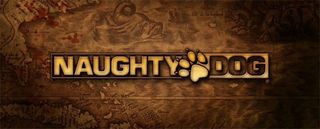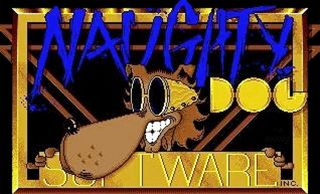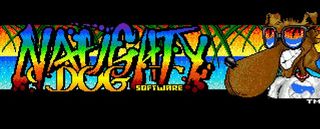
Ask GR Anything is a weekly Q%26A column that answers questions submitted by readers (as well as questions we're particularly curious about ourselves). Got a burning question about games or the industry? Ask us in the comments below and you may just get it answered!
In the videogame industry, software developers tend to group into a few categories when it comes to their company’s title. You’ve got the so-hardcore-we-must-be-compensating-for-something companies like Neversoft, Sledgehammer, Rockstar and Guerrilla Games. Then there’s the “delusions of grandeur” category: Silicon Knights, Marvelous Entertainment, Codemasters, and Lousy Games... wait, strike that last one.
But every once in a while, there’s a company that fits into the best category of them all: cryptic, with an obvious backstory. (See also: Bethesda, Bioware, Bungie) So for this week’s column, we asked ourselves a question (yes, we’re allowed to do that, read the opening paragraph): “What’s a Naughty Dog?”

So we got in touch with one of the head honchos at the Uncharted/Jak & Daxter/Crash Bandicoot developer, who – with the help of co-founders Jason Rubin and Andy Gavin – was able to enlighten us a bit.
“Back in 1989, when Jason Rubin and Andy Gavin were signing their deal with EA, they found out that JAM Software (Jason and Andy Magic…ouch) was trademarked in Australia, so they had 24 hours to come up with a name,” Wells told us. “They didn’t really have a list of names that didn’t make [the cut], but they latched on to a cartoon dog character that Jason had been drawing that wore sunglasses and hung out on the beach with women. The dog was actually part of early Naughty Dog logos (from 1989 into even the original Crash Bandicoot). After the deal was signed with EA, Trip Hawkins had a conversation with them, saying that he ‘loves the game, loves you both, but the name – Naughty Dog – won’t fly.’ Back then, all the company names were two ‘cyber’ words put together, like Micro, Vision, Electro, Play, Intelli, Soft, etc. Naughty Dog stood out. It stayed and it stuck.”

So that’s how the name originated: a nerdy college software designer drawing Furry beach porn. Well, not really, but you get the idea.
But even though the name only barely made it into existence, the team developed a devotion to the title, as it came to symbolize everything about the studio. When Sony acquired the company in 2001, there was an effort made to save the original name, rather than becoming yet another brand-named corporate studio (see: SCE Santa Monica, SCE Japan Studio, SCE San Diego, SCE Bend, SCE Foster City, SCE London, and SCE Cambridge). They wanted to stay Naughty Dog, rather than becoming “Sony Computer Entertainment Santa Monica Jr.,” which doesn’t have quite the same ring to it.
“It was absolutely critical that the studio not only retain the name after we were acquired by Sony, but that we maintained our identity and culture (which was certainly intertwined with and symbolized by the name). You so often see successful game developers, or companies in any field for that matter, lose their identity and soon thereafter their success after being acquired by a bigger corporation. Sony was (and still is) an amazing partner that understood the importance of Naughty Dog needing the freedom and flexibility to operate in the unconventional manner that we always have. Being a ‘Dog’ has an important meaning to everyone here, and we never entertained the idea of changing the name.”

Above: The Dog also appears in the logo at the beginning of the 1991 Genesis game Rings of Power, which has its own infamous history
We’d like to thank Sony and Naughty Dog for indulging our questions this week. They didn’t have to respond to this random query, but they did, and we give them mad props for that.
Want to know the story behind a gaming company’s name? Tell us which companies you want to know about in the comments. If there’s a lot of interest in this kind of story, maybe we’ll make it a regular thing. And as always, if you have any questions about the gaming industry, submit them in the comments (or by Tweeting @sciencegroen) and we may tackle it for a future Ask GR Anything.
In the coming weeks, we’ll answer reader questions about what goes on behind the scenes when players are locked out of an MMO, and why it’s so tough to get games like Xenoblade localized to the United States.
